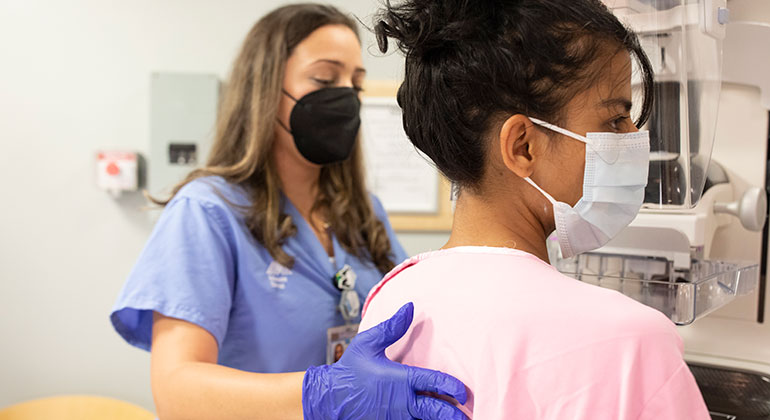Mount Sinai Researchers Develop Tool to Determine Function of MicroRNAs
As microRNA biology has been implicated in everything from the development of cancer to virus infections, a new tool developed by scientists at the Icahn School of Medicine at Mount Sinai holds tremendous potential to develop new therapies that involve these small regulatory fragments of RNA. The scientists’ findings are detailed in a study, titled “MicroRNA Function is Limited to Cytokine Control in the Acute Response to Virus Infection,” published in the December issue of Cell Host & Microbe. While the article focuses on microRNA function as it pertains to virus infection, the development and characterization of this new tool has implications that far exceed the field of microbiology.
“Apart from their roles in causing medical maladies, viruses have long been used as tools to reveal unappreciated aspects of biology, providing us with insights into the many unknowns of how our cells function,” said Benjamin tenOever, PhD, Fishberg Professor of Microbiology at the Icahn School of Medicine at Mount Sinai and corresponding author of the study. “We developed a tool based on a poxvirus gene that allows us to manipulate microRNA populations in any tissue or cell type we desire”.
With the capacity to fine-tune protein expression, microRNAs, also called miRNAs, help regulate cell maintenance and differentiation. This regulatory pathway is known to often malfunction in the development of cancer and its role in the response to virus infection has remained largely unknown and difficult to study. To determine the global role of miRNAs in both cell biology and the response to virus infection, the team at Mount Sinai, led by Dr. tenOever and PhD candidate Lauren C. Aguado, designed and generated a synthetic vector that rapidly eliminates total cellular miRNA populations in any cell or tissue to which it was administered.
While loss of miRNAs had a negligible impact on the cell’s immediate reaction to virus or the short term biology of the cell, sustained depletion was found to have dramatic results on gene expression that was coupled to a burst of cytokines – protein messengers that alert the immune system of a problem. In all, this work concludes that miRNA function is limited to modulating the biology of the cell over long periods of time. Having a tool that can now manipulate these responses provides us with an unprecedented platform to reprogram healthy cells or treat diseases such as cancer where these pathways have malfunctioned.
About the Mount Sinai Health System
Mount Sinai Health System is one of the largest academic medical systems in the New York metro area, with more than 43,000 employees working across eight hospitals, over 400 outpatient practices, nearly 300 labs, a school of nursing, and a leading school of medicine and graduate education. Mount Sinai advances health for all people, everywhere, by taking on the most complex health care challenges of our time — discovering and applying new scientific learning and knowledge; developing safer, more effective treatments; educating the next generation of medical leaders and innovators; and supporting local communities by delivering high-quality care to all who need it.
Through the integration of its hospitals, labs, and schools, Mount Sinai offers comprehensive health care solutions from birth through geriatrics, leveraging innovative approaches such as artificial intelligence and informatics while keeping patients’ medical and emotional needs at the center of all treatment. The Health System includes approximately 7,300 primary and specialty care physicians; 13 joint-venture outpatient surgery centers throughout the five boroughs of New York City, Westchester, Long Island, and Florida; and more than 30 affiliated community health centers. We are consistently ranked by U.S. News & World Report's Best Hospitals, receiving high "Honor Roll" status, and are highly ranked: No. 1 in Geriatrics and top 20 in Cardiology/Heart Surgery, Diabetes/Endocrinology, Gastroenterology/GI Surgery, Neurology/Neurosurgery, Orthopedics, Pulmonology/Lung Surgery, Rehabilitation, and Urology. New York Eye and Ear Infirmary of Mount Sinai is ranked No. 12 in Ophthalmology. U.S. News & World Report’s “Best Children’s Hospitals” ranks Mount Sinai Kravis Children's Hospital among the country’s best in several pediatric specialties.
For more information, visit https://www.mountsinai.org or find Mount Sinai on Facebook, Twitter and YouTube.

Scientists Create Most Powerful, Accurate Tool Yet to Research Deadliest Blood Cancer
Apr 18, 2023 View All Press Releases
Study Identifies New Gene That Drives Colon Cancer
Oct 14, 2022 View All Press Releases
Molecular Treatment Is Able to Control Brain Metastasis of Different Tumors
Feb 11, 2022 View All Press Releases
Mount Sinai’s Dubin Breast Center Annual Benefit Raises Over $2.5 Million
Feb 08, 2022 View All Press Releases

